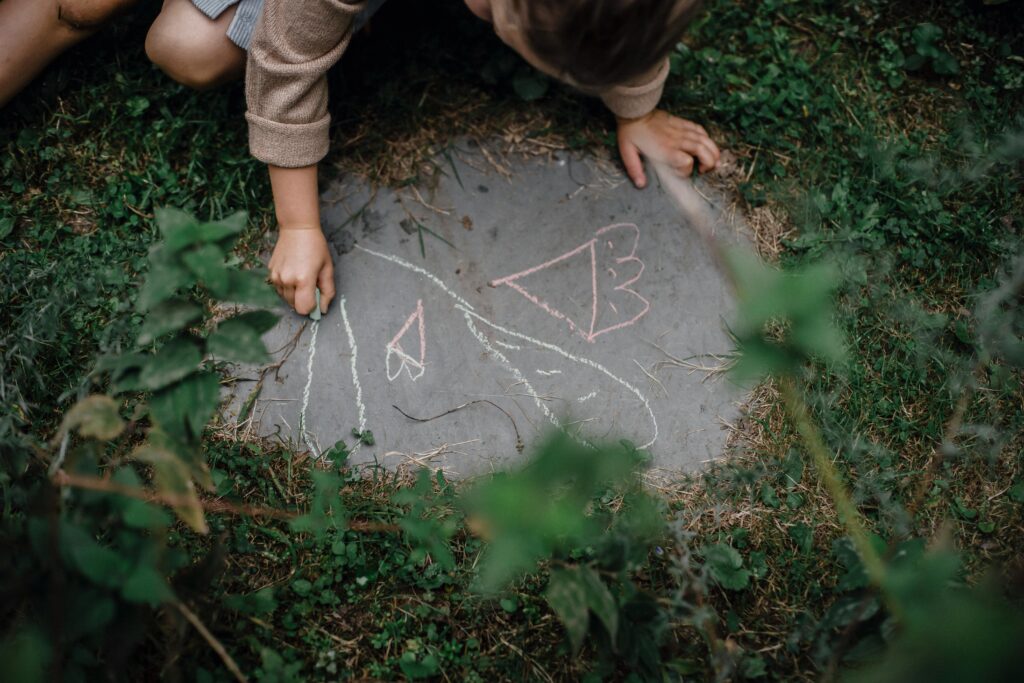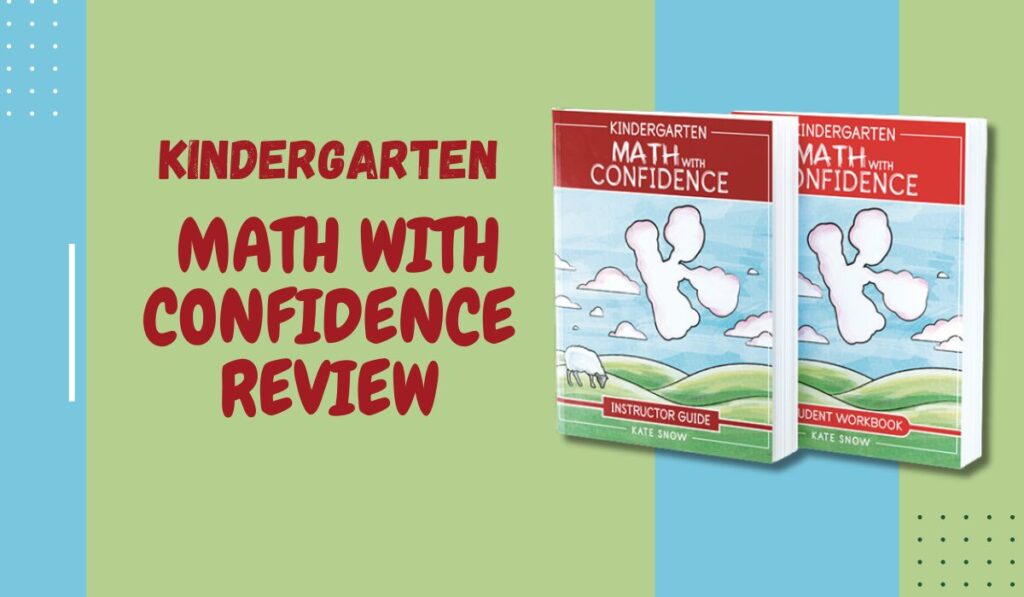The short answer is no…except when it is.
From strictly an education standpoint, there are so many great resources out there. The main thing you want to start in Kindergarten is a learn to read (phonics) program, a math program, a handwriting program, and in my opinion, some sort of program where you include a lot of reading aloud for additional content knowledge.
This content knowledge will set them up for success when they are reading to learn in second or third grade. In the later years, it will make it easier to read to learn if they have more background knowledge and vocabulary on different topics. This will make them successful when they move from phonics to comprehension.
I have a complete and thorough resource guide for homeschooling Kindergarten that you can read here. However, if you came to this page, you likely are worried that it will be too hard to homeschool Kindergarten, so I want to keep it simple.
Reading
For the most “hold your hand” style of reading program, I would choose All About Reading. The reviews on it are fantastic and everyone I know who uses it says it is the best scripted reading program. It does move slower than other reading solutions, but you will be guided the entire way and you can guarantee that your child will get a good foundation in reading. You will not be skipping any foundational phonics concepts.
Because of the lack of writing in this program, I do know families will compliment this program with the Explode the Code books as well.
Math
For math, I would recommend Math with Confidence. It is also scripted and very thorough. It includes a lot of hands on activities and games, making it very engaging for kids. It also includes short lessons which is key for Kindergarteners with short attention spans.
Writing
For handwriting, I’m not sure you can go wrong here, but I personally chose the Good and the Beautiful handwriting K book. This decision really shouldn’t make for a lot of stress. Basically, we just need Kindergarteners to have some strategic time to work on their fine motor skills and develop the ability over time to write well.
Books
For content learning, I would choose Gentle and Classical Primer. It has a solid reading plan that goes over a variety of topics including Bible, Manners and Hygiene, wonder tales, etc. The teacher’s guide which includes the reading plan is totally free to download. If you buy the downloadable files or her print version, it includes corresponding activities to go along with the reading as well as activities that include art and music.
How long does it take to homeschool?
From a curriculum standpoint, that’s it! It would take roughly 30 to 40 minutes a day to do reading, writing, and arithmetic. Then an extra 20 minutes or so to do the readings in Gentle and Classical Primer.
Outdoor Play

Outdoor play is another important component to a Kindergarten year. Finding time for them to go outside is simple, but sometimes kids get bored outside and want more of your attention. And that can be a challenge, at least for me, to always feel like I have to “entertain” my child.
With outdoor play, my kids do so much better if I’m outside with them and not on my phone. This part is difficult for me because I do tend to get bored. I have to remind myself that God has given me a blessing to be with my kids in this short season of life and to try to stay connected with them.
I do much better outside if I find something else to do as well. Maybe I play with them for 5 minutes outside, but then I transition to something else to do such as pulling weeds. just being present in the backyard with them keeps my kids happier and outside longer. I can then transition and say something like, ” I’m going to go fix lunch and I will call you in when it’s ready.”
Free Play
Free play is the other component to Kindergarten. And this is also very easy. You can feel very accomplished that you child got hours of time to just play. Similar to outside time, I do find that if I play for 5 or 10 minutes with them building a big lego structure, for example, then I can usually transition to something else and they will keep on playing in their own creative way.
So what is hard about homeschooling?

I would say the hardest thing about homeschooling, at least in my experience, is dealing with sinful behaviors. The sin of my child who has to do something a little bit challenging and then throws a fit about it. The sin of me as the mom who loses patience and yells then they aren’t listening.
These sins, however, when faced in homeschool and in a Godly way, should lead to striving to be more like God. A child who struggles with getting schoolwork done leads to gaining resilience. A mom who struggles with patience can look to God for sanctification.
So is homeschooling Kindergarten hard? It depends on your definition of homeschooling. If your definition of homeschool is educating them in academics, then no, it is not difficult.
But parenting is hard. If you choose traditional school, it could seem like homeschooling is more difficult because it seems like you spend more time dealing with these sinful behaviors of both parent and child. However, if we face these challenges multiple times a day, we can reap the benefits of spending more time raising our children with the values we want them to have.
How do we make it easier to deal with the hard part of homeschooling? Check out this video below of a homeschooling mom being interviewed by her daughter about how to build resilience in your homeschool. You can find the resource that accompanies this topic, called “Excuses Exposed,” here.



